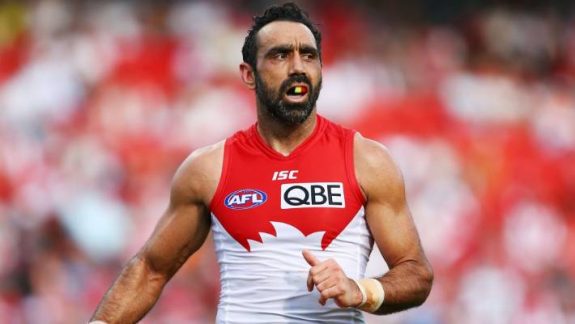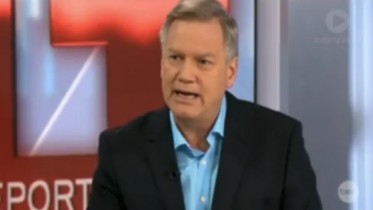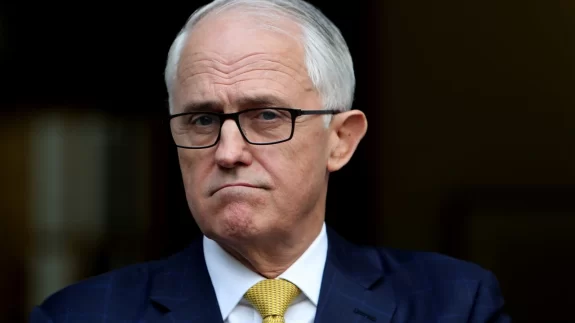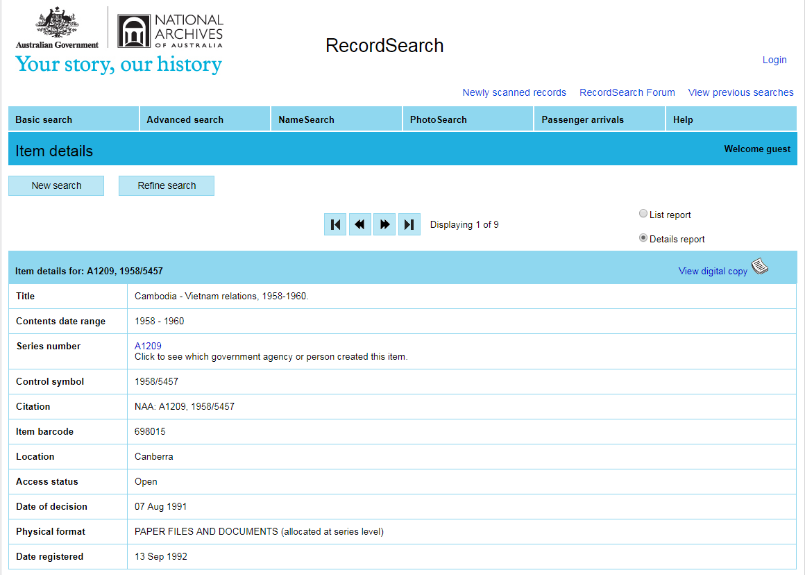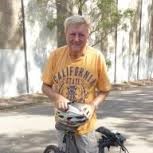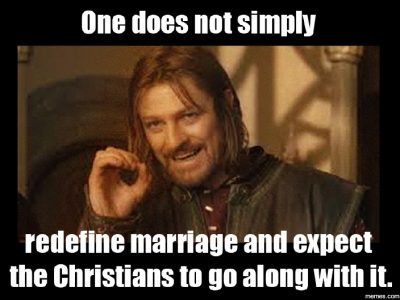Deconstructing a dog whistle
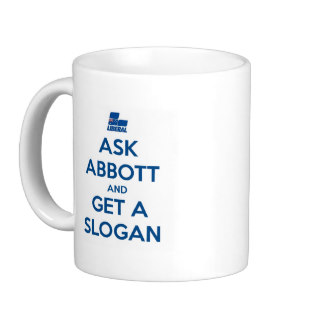
Tony Abbott’s government has taken some body-blows in recent weeks, and Abbott’s own leadership standing is suffering. Some say that this is due to a savage budget that seeks to address a non-existent budget emergency by penalising those who can least afford it and by punching the powerless, compounded by poor communications and head-scratching political decisions. If this were the case, one might be forgiven for thinking that the best way of recovering the party’s fortunes might be to revisit the thinking behind the budget, to seek to appropriately identify who the real lifters and leaners in the economy are, and to fix the way that the government goes about doing business.
Or you could go for the approach of sowing distrust and disunity, painting an amorphous group as the “Other” in order to convince Australians that you are “One of them” and being strong to protect them from the forces of darkness. This is a skill-set and a rulebook Tony Abbott inherited from his great hero John Howard and this weekend’s video message shows that he has enthusiastically embraced it.
If national security is so important that it has prompted an address to the nation, at the expense of attention to Joe Hockey’s “Never back to surplus” budget and Andrew Robb’s TPP negotiations and the likely forthcoming execution of the Bali Nine kingpins, then it would seem worthwhile to examine the detail of Mr Abbott’s speech.
When you look at what Mr Abbott had to say, it becomes clear that he is taking two specific incidents and generalising threats from them, generalising failures from them, and using them to beat up the necessity for changes. In two minutes and 23 seconds, he commiserates with the victims of violence, generalises the threat to all Australians, spruiks the actions of the government, reminds us of the threat and reassures us that he is keeping us safe.
An examination of the specific incidents to which Abbott refers, however, tells a more sobering story. There have been no significant failures of our immigration and border protection regulations, no breaches of our balanced and considered jurisprudence and bail system. There are no practical measures that could have prevented these specific events that prompt Abbott’s address. Once you understand that any measures the government might propose can have no possible effect on preventing these specific events, the low-brow dog whistle becomes crystal clear, and it becomes possible to see the real threat behind the words – the threat of further intrusive and unwarranted interference into people’s everyday lives.
A Message from the PM
Abbott begins by referring to the recent Lindt cafe attack by Man Haron Monis. It is perfectly appropriate to “acknowledge the atrocity”. It was one man with a shotgun and three people, including the attacker, died in the event. “Atrocity” is a strong word, but Abbott commences as he means to continue. In any case, the scene is set, the tone of the address is identified: this is a message about terrorism.
Abbott continues with a pledge to keep Australia as “safe and secure” as humanly possible. Federal and State governments are conducting a joint review into the siege, and the report will be released soon. The report will make recommendations and the government intends to take some actions. History has shown us that actions taken by a government are often only a subset, or sometimes a completely different set, to the recommendations of any given report, but we will reserve judgement. In effect, Abbott is attempting to take credit in advance for an announcement the government has yet to make. He is showing the government is strong, by pointing to the future when it intends to take strong action that it can’t tell us about yet.
We may get an inkling of the actions the government has in mind when Abbott addresses the Parliament on the topic of national security next Monday. But we may have a sneak preview as Abbott continues on.
“For too long we have given those who might be a threat to our country the benefit of the doubt. There’s been the benefit of the doubt at our borders, the benefit of the doubt for residency, the benefit of the doubt for citizenship and the benefit of the doubt at Centrelink. And in the courts, there has been bail, when clearly there should have been jail.”
When we unpack this statement, in the context of recent events and of the preceding text, Abbott is effectively telling us that we have not been strong enough in our immigration policies, and failures in our bail and justice systems. Abbott refers very specifically to the one example he has mentioned, Man Haron Monis, the attacker in the Lindt cafe event. Australians – particularly those in Sydney, Abbott’s home constituency – will be very aware
also of the arrest this week of two young men, home-grown potential jihadists. Despite not mentioning them specifically, the media has been quick to connect the dots between their arrest and this statement by Abbott.
The problem is that neither our immigration, residency, citizenship nor bail processes failed in any of these cases.
Man Haron Monis was on bail for a variety of criminal offenses at the time of his cafe attack. These cases were not religious in nature. He was accused of being accessory before and after the fact for the murder of his wife by his girlfriend. Separately, he was on bail on indecency charges. Neither case could have given indication that he was planning to turn into a shotgun-wielding maniac. [Read: How was Man Haron Monis not on a security watchlist?]
There were indications perhaps of mental instability, of paranoia, and definite isolation and marginalisation. Monis was known for holding “extremist” views. That’s easy to say in retrospect. His views on the West’s involvement in Middle-Eastern conflicts would not be out of place in a Greens party room meeting. He was, until very shortly before his act of terror, a well-dressed and urbane Australian.
Could the Lindt Cafe attack have been avoided if Man Haron Monis was denied bail? Certainly. On what basis could bail have been denied, though? This was not a wild-haired fanatic before the magistrate.
Bail is a State issue of law enforcement. As it happens, laws have already been tightened in NSW that would have prevented Monis’ bail. So what exactly does Abbott, in the Federal sphere, expect to do to make Australians still safer?
The recent arrests in Sydney were of two young men, Mohammad Kiad and Omar al-Kutobi. Allegedly they were arrested just hours before they intended to attack members of the public with knives. Could either of these alleged terrorists have been captured earlier with tighter border protection policies, or more intelligence resources? Were they abusing their Centrelink entitlements?
It would appear not. Kiad, now 25, came into Australia four years ago on a family visa to join his wife. al-Kutobi fled Iraq with his family ten years ago; he came to Australia in 2009. Shortly thereafter he received a protection visa and he became an Australian citizen in 2013. Neither man was a wild-haired fanatic, nor obviously a danger to the public.
The pair were not known to police. They were not known as religious extremists. Until recently, it doesn’t appear that they were. Instead, they were young Aussie men, fond of barbeques and American TV and luxury goods. Their radicalisation occurred over the last few weeks, perhaps triggered by the attacks on the Charlie Hebdo offices last month in Paris. Their rapid radicalisation was reported to Australian authorities by their own community about a week ago. Mere days later, police swooped.
How were tighter immigration rules four years ago going to prevent a planned terror attack that took months, at most, to be conceived and instigated, from men who by all reports only became extreme within the last six months, and on Australian soil?
The other problematic element of this densely offensive paragraph is the reference to Centrelink. In the context of this strident message, the inference is clear: that terrorists rely on Newstart. This is so ridiculous as to be laughable – yet it plays to the same crowd who lapped up the election rhetoric about boat people clogging up the motorways of Sydney.
The other possible reading is that people who rely on welfare are as bad as terrorists. I’m not certain which interpretation is the more offensive.
Abbott continues his address with the key message: all too often, “bad people play us for mugs. Well, that’s going to stop.”
Who are these bad people? That’s not been shown. Hopefully it’s not Man Haron Monis, because if we’re going to stop people like him from “taking us for mugs”, we presumably will no longer be providing welfare to those with mental issue. Hopefully it’s not Mohammad Kiad and Omar al-Kutobi, because in order to curtail the terrorist threat they pose, we would need to prevent muslims in general from entering the country.
Abbott makes a variety of references to the “Islamist death cult”. There’s a three-word slogan that’s earned him a couple of poll points before. It is also simultaneously emotive, highly offensive to large groups of undeserving people, and impossible to criticise without coming across as an apologist. Well, this author will criticise it. Islamic State might possibly be Islamist, but using the term paints all Muslims alike. IS is most certainly not a death cult. Yes, it uses unsupportable means and revels in bloodshed, but it does so not for the sake of killing people, but rather to attract those it considers devout. The killings are a means, not an end. And the idea of a world caliphate of muslims is dear to many. Nobody should seek to defend the actions or the Islamic State. However, belittling IS with a three-word slogan ignores the complexities and the real grievances and aspirations of millions of muslims everywhere.
Abbott goes on to talk about the much-discussed “new threats” of home-grown backyard terrorists, armed with “a knife, a flag, a camera phone, and a victim”. Terrorists are everywhere, around every corner, lurking under every bed.
By all means, do what you can to identify potential attackers before they take a life. But in the same way that it’s impossible to protect the public from an armed robber in a milk bar, it is impossible to protect the public from a quiet young man who just wants to be respected.
Abbott finishes his presentation by proudly boasting of working with other nations to degrade the Islamic State through military means; and improving the powers and resources of Australian intelligence agencies. Finally, he claims the need for stronger laws to “make it easier to keep you safe”. These include the data retention laws currently before parliament, but, worryingly, might also include other laws and regulations Abbott does not describe, but which will inevitably further encroach on our liberties and our privacy. Of course, it’s all for our own good. The government is being strong to keep Us safe from Them.
“As a country we won’t let evil people exploit our freedom.” As Kaye Lee has written today, it’s a pity that credo doesn’t stretch to include the current government.









